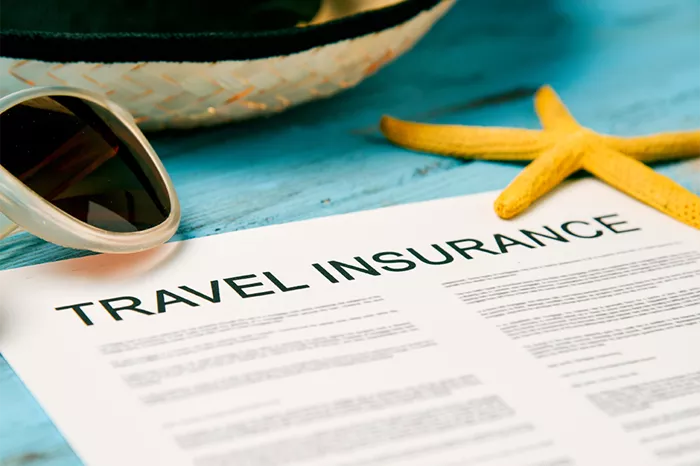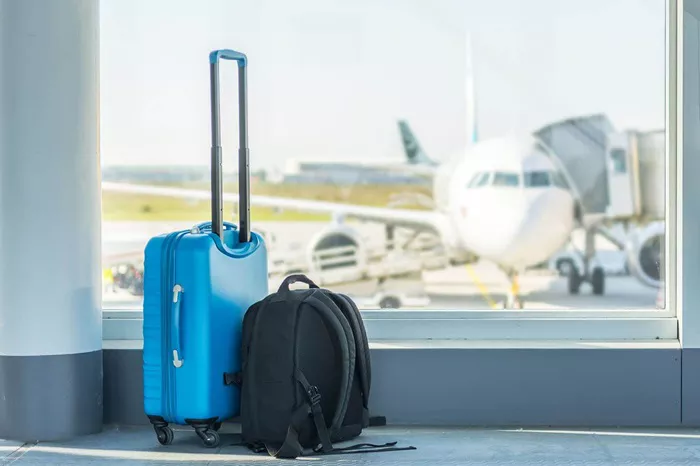Travel insurance is a significant consideration for anyone planning a trip. The question, “Should I book travel insurance?” is more than just a matter of cost—it’s about ensuring your safety, financial protection, and peace of mind while traveling. This detailed guide will provide an in-depth exploration of the various aspects of travel insurance, including its benefits, types of coverage, and factors influencing the decision to purchase it. By the end of this article, you will be equipped with the knowledge to determine whether travel insurance is a suitable investment for your next journey.
Understanding Travel Insurance
Travel insurance is designed to protect you from financial losses and offer assistance in case of unexpected events that could impact your trip. It encompasses a range of coverage options tailored to different needs and circumstances. Understanding what travel insurance covers can help you evaluate its importance for your travel plans.
Types of Travel Insurance
Medical Coverage
Medical coverage is one of the most crucial components of travel insurance. It covers expenses related to medical emergencies that occur during your trip, which can be particularly valuable when traveling abroad.
Emergency Medical Expenses: Covers the cost of medical treatment if you fall ill or get injured while traveling. This can include hospital stays, doctor visits, and medications.
Medical Evacuation and Repatriation: Provides coverage for the cost of transporting you to a medical facility or back home if you require urgent medical care.
Trip Interruption Due to Medical Reasons: Offers reimbursement for unused trip expenses if you need to cut your trip short due to a medical emergency.
Trip Cancellation and Interruption Insurance
Trip cancellation insurance reimburses you for prepaid, non-refundable travel expenses if you need to cancel your trip for covered reasons. Trip interruption insurance provides compensation if you need to cut your trip short.
Cancellation Due to Illness or Injury: Reimburses the cost of your trip if you or a family member becomes ill or injured, forcing you to cancel.
Cancellation Due to Family Emergency: Covers non-refundable expenses if you need to cancel due to a family emergency.
Reimbursement for Unused Trip Expenses: Offers compensation for expenses incurred for unused portions of your trip if you need to return home early.
Travel Delay Insurance
Travel delay insurance covers additional expenses incurred due to delays in your trip, such as accommodations and meals. This coverage is useful when your trip is delayed by factors like weather, strikes, or mechanical issues.
Accommodation Expenses: Covers the cost of lodging if you are delayed and need to stay overnight.
Meal Expenses: Provides compensation for additional meal costs incurred during the delay.
Additional Transportation Costs: Reimburses the cost of alternative transportation if your original travel plans are disrupted.
Baggage Loss and Delay Insurance
Baggage insurance offers coverage for lost, stolen, or damaged baggage and personal items. It also provides compensation for essential items if your baggage is delayed.
Replacement of Lost or Stolen Baggage: Covers the cost of replacing lost or stolen baggage and personal belongings.
Compensation for Essential Items: Provides coverage for essential items if your baggage is delayed for an extended period.
Coverage for Lost or Damaged Personal Belongings: Reimburses you for personal items that are lost or damaged during your trip.
Accidental Death and Dismemberment Insurance
This insurance offers financial protection in case of accidental death or severe injury during your trip. It provides a benefit to your beneficiaries or compensation for injuries.
Financial Benefit for Accidental Death: Provides a lump sum payment to your beneficiaries in case of your accidental death.
Compensation for Severe Injuries: Offers financial compensation for injuries resulting in dismemberment or loss of use of limbs.
Peace of Mind for You and Your Family: Ensures financial support for your loved ones in the event of a tragic incident.
Factors to Consider When Deciding Whether to Purchase Travel Insurance
Destination
Your travel destination can significantly impact your decision to purchase travel insurance. Factors such as healthcare costs and safety conditions in your destination should be considered.
Healthcare Costs in the Destination: Evaluate the cost of medical treatment in the area you are visiting. High costs can make travel insurance more valuable.
Safety and Security Concerns: Assess the safety of the destination. Areas with higher risks may warrant additional protection.
Potential Risks and Hazards: Consider natural disasters, political instability, and other hazards that may affect your trip.
Duration of Trip
The length of your trip can influence the necessity of travel insurance. Longer trips may present more risks and higher potential costs.
Risk Factors for Extended Trips: Longer trips have increased chances of encountering issues, making insurance more beneficial.
Increased Likelihood of Trip-Related Problems: Extended stays may lead to more potential problems, such as illness or accidents.
Costs Associated with Longer Stays: The financial impact of potential issues increases with the duration of the trip.
Activities Planned
Your planned activities can affect your need for specialized coverage. High-risk activities may require additional insurance.
Risk Level of Planned Activities: Activities like adventure sports can increase the risk of injury and may require specific coverage.
Specialized Coverage for Adventure Sports: Some policies offer specialized coverage for activities such as skiing, diving, or climbing.
Potential for Injuries or Accidents: Consider the likelihood of injuries based on the activities you plan to engage in.
Existing Health Insurance Coverage
Review your current health insurance policy to determine if it offers sufficient coverage while traveling. Some policies may provide international coverage.
Coverage Provided by Existing Health Insurance: Check if your current policy covers medical emergencies abroad.
Limitations and Exclusions of Current Policy: Understand the limitations and exclusions that may affect your coverage while traveling.
Additional Coverage Needed for Travel: Determine if you need additional coverage beyond what your existing policy offers.
Cost vs. Potential Risk
Assess the cost of travel insurance against the potential financial risk of not having coverage. Weighing these factors can help you decide if insurance is a worthwhile investment.
Cost of Travel Insurance: Compare the cost of insurance with the potential expenses you may incur without it.
Potential Expenses Without Insurance: Consider the potential financial impact of issues like medical emergencies or trip cancellations.
Financial Risk Assessment: Evaluate the overall risk and potential costs associated with your trip.
See Also: What Insurance Should I Get for Traveling?
Benefits of Booking Travel Insurance
Peace of Mind
Travel insurance provides peace of mind by offering financial protection and assistance in case of unforeseen events. Knowing you have coverage can reduce stress and enhance your travel experience.
Reduced Stress and Anxiety: Feel more relaxed knowing you are protected from potential issues.
Confidence in Financial Protection: Trust that you have coverage in case of emergencies or disruptions.
Support During Unexpected Situations: Access resources and support when unexpected events occur.
Financial Protection
One of the main advantages of travel insurance is the financial protection it offers. It helps cover various expenses related to medical emergencies, trip cancellations, and lost or stolen belongings.
Coverage for Unexpected Medical Expenses: Receive financial assistance for medical costs incurred during your trip.
Reimbursement for Trip Cancellations: Get compensated for non-refundable expenses if you need to cancel your trip.
Compensation for Lost or Stolen Items: Protect yourself from financial loss due to lost or stolen baggage and personal items.
Emergency Assistance
Many travel insurance policies include 24/7 emergency assistance services, providing valuable support in case of problems during your trip.
Access to Emergency Assistance Services: Get help and resources for emergencies, such as medical issues or travel disruptions.
Support for Medical Emergencies and Other Issues: Receive assistance for various travel-related problems.
Resources for Resolving Travel-Related Problems: Access tools and support to resolve issues quickly and efficiently.
Coverage for Pre-Existing Conditions
Some travel insurance policies offer coverage for pre-existing medical conditions, which can be beneficial for travelers with existing health issues.
Coverage for Pre-Existing Conditions: Obtain protection for medical conditions you had before purchasing the insurance.
Requirements for Coverage Inclusion: Understand the conditions and requirements for pre-existing condition coverage.
Additional Protection for Travelers with Health Issues: Secure extra protection for travelers with ongoing health concerns.
When Travel Insurance May Not Be Necessary
Domestic Travel
For trips within your home country, travel insurance might be less critical, especially if you have adequate health insurance coverage domestically.
Coverage Provided by Domestic Health Insurance: Many domestic health insurance plans offer coverage for medical emergencies within your home country.
Lower Risk of International Issues: Domestic trips generally involve fewer risks compared to international travel.
Potential Savings on Insurance Costs: You might save money by not purchasing travel insurance for domestic trips.
Credit Card Coverage
Some credit cards offer travel insurance benefits when you use them to pay for your trip. Review the terms and conditions of your credit card’s coverage to determine if it meets your needs.
Benefits Provided by Credit Card Insurance: Check the travel insurance benefits included with your credit card.
Terms and Conditions of Coverage: Understand the specific terms and limitations of your credit card’s travel insurance.
Additional Coverage Needed: Determine if the credit card coverage is sufficient or if you need additional insurance.
Low-Risk Trips
For short trips or trips with minimal risk, you may decide that travel insurance is less necessary. Evaluate the risks and potential costs to make an informed decision.
Assessment of Trip Risks: Consider the level of risk associated with your trip.
Short Duration and Low-Risk Activities: Short trips and low-risk activities may pose fewer challenges.
Potential Cost-Benefit Analysis: Weigh the cost of insurance against the potential benefits for a low-risk trip.
Conclusion
Deciding whether to book travel insurance involves considering various factors such as your destination, trip duration, planned activities, existing health coverage, and the cost versus potential risk. Travel insurance offers numerous benefits, including peace of mind, financial protection, and emergency assistance. By carefully evaluating these aspects, you can make an informed decision about whether travel insurance is a wise investment for your next trip. Whether you choose to purchase travel insurance or not, being prepared and aware of your options will contribute to a more enjoyable and worry-free travel experience.






















